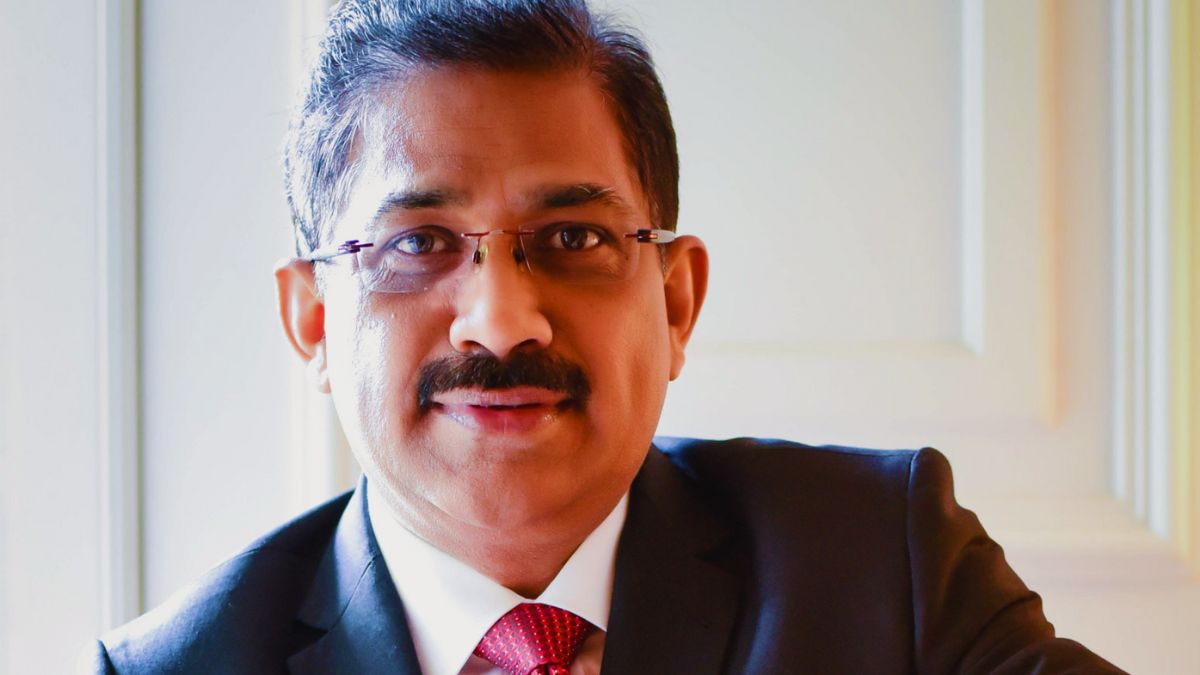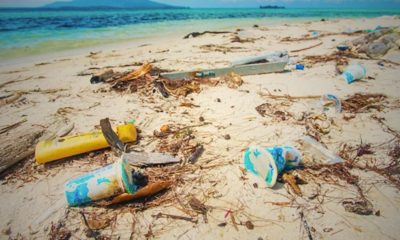Business
Major Tourism Operators Keep Industry Stuck in 1950s Model

While authorities tout a recovery in the sector that has enabled the rehiring of approximately 100,000 workers, Sen Ramsamy, Managing Director of Tourism Business Intelligence, offers a more nuanced perspective on the situation:
Has the Mauritian tourism sector recovered considering the approximately 1.29 million tourists welcomed at Plaisance by the end of 2023?
“In 2023, we fell considerably short of the target of 1.4 million (…) to determine if tourism has successfully recovered from the contraction, we need to compare with data from before the Covid-19 pandemic.”
How did the local tourism sector overcome the economic contraction in 2020, and what are the current prospects in this sector? Is the recovery truly back?
After the Covid-19 pandemic, all destinations around the world implemented strategies to revive tourism and their economies.
Some succeeded and even exceeded their expectations. In Mauritius, despite the excitement, tourism has not been able to reach the government’s goals since 2021, let alone regain the record level of 2018.
In 2023, we fell significantly behind the target of 1.4 million, while our competitors in the region have far surpassed their performances before the Covid-19 pandemic.
The perceived nice recovery of tourism is due to comparing arrivals to those during the years of closure and reopening. To ascertain if tourism has successfully emerged from the contraction, comparisons with pre-pandemic data are necessary.
In terms of revenue, tourism generated Rs 86 billion in 2023 compared to Rs 64 billion in 2019. Once again, the perception of a successful harvest is misleading, as the rupee has lost about 25% of its value and average expenses in euros have remained roughly the same at approximately 120 euros per day.
Another unnoticed fact is the decrease in spending on excursions, recreation, and shopping. With ‘All-Inclusive’ packages, the majority of tourist revenues benefit hotels, to the detriment of other operators and the population.
Additionally, during the Covid-19 pandemic, the government invested Rs 400 million in the Liverpool football team to supposedly revive the English market.
The result: Mauritius welcomed 145,000 English visitors in 2023 compared to 155,000 in 2018.
Instead of focusing on numbers, strategies should encourage visitors to spend more. If a tourist had spent an average of 200 euros per night in Mauritius in 2023, the country would have collected Rs 144 billion.
In the Maldives, the average tourist spending hovers around 400 euros per day. Mauritius is making efforts to overcome economic contraction but is not meeting its goals due to poor strategies and lack of vision.
By taking advantage of labor law amendments during Covid, some have quietly pushed their best and oldest employees out to reduce labor costs and increase profits.
Have operators in this sector recognized the stakes?
The stakes in tourism are complex, with multiple challenges and significant prospects. The fate of local tourism seems dependent on the whims of a few major operators who want to perpetuate the outdated model dating back to the 1950s.
They prefer that tourism remain predominantly focused on beach activities, even though our most beautiful beaches are under their control, leaving breadcrumbs for the rest of the population, which, through its kindness, elevates our tourism reputation.
Operators know what they want from tourism but pretend to ignore what the country loses by keeping it stuck in time.
By taking advantage of labor law amendments during Covid-19, some have gently pushed their best and oldest employees out to reduce labor costs and increase profits, then complain about a lack of qualified workforce.
Out of the 33,000 direct jobs in 2019, the sector lost 5,000 employees at the end of the health crisis. In return, they proudly mention 150,000 indirect jobs, without explaining the source or methodology, likely to impress decision-makers ahead of the budget presentation. This explains that.
What reforms did you expect in this sector during the double crisis of the pandemic and the war in Ukraine?
To reform tourism, one must understand the global environment in which this sector operates. After a painful exit from Covid that brought tourism to its knees, our sector faced the war in Ukraine.
Several other factors have worsened an already fragile global tourism, such as more frequent floods, the Israeli-Palestinian conflict, and the insecurity and mistrust it has created, especially against countries supporting the Gaza massacre, unstable oil prices impacting aviation, and the risk associated with electoral campaigns this year in several sender countries.
As a result, countries have redefined their tourism development plans and marketing strategies, rebranding their destinations.
They successfully revived their tourism, surpassing pre-Covid levels. Mauritius, not immune to these external factors, is also facing a dengue epidemic.
This situation is closely monitored by foreign embassies and tour operators, coinciding with an upcoming election campaign that, hopefully, will be calm and civilized.
Any election campaign in a country directly impacts its tourism. Despite these geopolitical, climatic, economic, and social upheavals, Mauritius seems indifferent and continues with its old tourism model for ‘more of the same.’
Tourism needs a new business model that offers more opportunities to all Mauritians.
Hopefully, the foreign experts working on the tourism master plan will understand the real challenges, unspoken concerns, sensitivities of our multiracial society, identify risks and true challenges, and propose a visionary master plan that allows Mauritian tourism to finally set sail on a grander scale.
Do some specialists in this sector call for further development of domestic tourism, even as ‘deep Mauritius’ has still not established hosting standards?
The global trend favors experiential tourism that promotes exchanges, cultural discovery, and the lifestyle of host countries.
Despite immense potential, Mauritius has never truly developed domestic tourism. The country’s interior offers rich landscapes, flora, fauna, and a multi-ethnic, multilingual, and multicultural population living harmoniously, globally recognized for its hospitality and proverbial smile.
Domestic tourism is more than just encouraging beach tourists to visit cities and villages. Mauritius must become a destination of happenings with culture, arts, and the MICE concept.
It’s an untapped goldmine that would fill planes, hotels, and further blossom entrepreneurship and talents of Mauritians across the country.
We helplessly witness the growing number of abuses against visitors today. Bringing perpetrators to swift justice is not a solution. Prevention is better than cure.
Is the sector, including large hotels, prioritizing local skills in decision-making?
Mauritians have demonstrated their management talent in various sectors, especially hospitality worldwide.
The majority of hotels in Mauritius are led by locals, aside from international chains needing to promote their brands and international standards.
However, in some hotels, foreigners may exert undue influence and sometimes exploit staff and young interns. This is unacceptable.
In some large hotels, foreign directors come to learn the know-how of Mauritian hospitality and cuisine.
Hence, the development of tourism in Mauritius is not just about counting arrivals at the end of each month; significant work is required for sustainable, fair, and profitable tourism sector benefiting the entire population.
The state should aid circular economy projects in coastal hotels and restaurants, or should this be the operators’ initiative with their resources?
Hotels, more than restaurants, are generally aware that the circular economy represents profitability and sustainability for their businesses.
Beyond its ecological importance, circular economy in tourism should also promote synergy between operators and the local community.
Hence, I oppose the ‘All-Inclusive’ concept, not high-end tourism practice. Hotels in Mauritius persist with this concept, knowing it deprives the population of numerous opportunities and the national economy of investment, employment, added value, and tax revenue.
It’s time for the government’s next budget to address the underlying issues and fundamentals of the tourism sector, rather than offering confetti measures such as Rs 200 (4 euros) vouchers to incentivize duty-free shopping.
The government needs to rigorously analyze technical tourism aspects, be aware of losses from clinging to a 1950s tourism model and lobbies.
Furthermore, how can we send strong signals to indicate that criminal acts against foreigners will be severely punished?
The tourism police has been in existence in Mauritius since 2003. I myself had taken this initiative when I was the director of AHRIM.
The then Commissioner of Police, Mr. Gopalsing, and his Deputy, Mr. Bruneau, supported me in this endeavor.
AHRIM had trained over thirty police officers and provided equipment for them to better protect tourists in high-risk areas. This new unit had started doing great work in the field and was yielding positive results.
Some countries even approached me to better understand AHRIM’s approach and the modus operandi of this collaboration between the hotel association and the police force.
Unfortunately, due to shortsightedness, this efficient police unit was merged into the regular force without sufficient resources, and most importantly, without a vision.
We are now witnessing a growing number of cases of abuse against visitors. Quickly bringing offenders to justice is not a solution. ‘Prevention is better than cure’.
Like many similar measures undertaken by AHRIM in the past, tourist operators, especially those who receive tourists, have a patriotic duty to contribute financially and practically to help address the multiple issues facing their clients and this vital sector of our economy.
A revival of the tourism police is needed to combat abuses against tourists. The work ahead is immense.
Source: Defi Media











